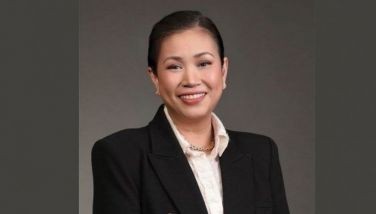Microfinancing: Micro-step to attain financial inclusion
CEBU, Philippines — Financial inclusion is a goal that both the national government and financial institutions continually strive for.
According to the World Bank, financial inclusion is the key enabler towards reducing extreme poverty and boosting shared prosperity. It is also an enabler for seven (7) of the 17 Sustainable Development Goals (SDGs) of the United Nations (UN), which is “a global call to action to end poverty, protect the planet, and ensure that people enjoy peace and prosperity.”
For the World Bank, financial inclusion means “individuals and businesses have access to useful and affordable financial products and services that meet their needs.” Additionally, these financial products and services—such as transactions, payments, savings, credit, and insurance—are “delivered in a responsible and sustainable way.”
In developing nations such as India and the Philippines, financial inclusion lends a particular focus on providing appropriate and affordable financial products and services to vulnerable groups, such as low-income families and micro-entrepreneurs that have no access to formal banking.
This distinction, in turn, explains the sustained popularity of microfinance institutions in developing countries. In the Philippines alone, there are more than 170 microfinance institutions that cater to more than 1.47 million borrowers, according to 2015 data from the Bangko Sentral ng Pilipinas (BSP).
“In the Philippines, there is still a huge gap in terms of access to financing. Unless this gap gets addressed by banks and other financial institutions, it remains to be the greatest barrier to achieving financial inclusion in the country,” said Jerome Minglana, BPI Direct BanKo, Inc. President.
The Role of Microfinancing
In a bid to provide a more formal lending platform to self-employed micro-entrepreneurs (SEMEs), a sector that rarely has access to formal banking, the Bank of the Philippine Islands (BPI) merged two (2) of its subsidiaries to form BPI Direct BanKo.
“In its 167 years, BPI has provided well-developed and relevant financial products and services to Filipinos. BPI Direct BanKo is BPI’s vehicle to address financial inclusion by providing micro-entrepreneurs access to appropriate and affordable loan products to grow their businesses, and extending expert advice to enhance their financial knowledge,” said Minglana.
Through its 200 branches nationwide, BPI Direct BanKo aims to elevate the lives of everyday micro-entrepreneurs, such as market vendors and the proprietors of neighborhood bakeries, mini-grocery stores, and eateries, among others.
“By providing a more formal lending platform, we not only elevate the lives of small business owners, but also create an enabling business environment that benefits the country’s economic development in the long run. They are the backbone of the country,” said Minglana.
To get past the usual hurdles of borrowing from banks, BPI Direct BanKo has simplified its documentary requirements and streamlined its procedures to speed up the loan application process.
“Loan applicants tend to get intimidated by a long list of documentary requirements, which are often hard to acquire or secure. At BPI Direct BanKo, we only require simple documents that most micro-entrepreneurs can easily provide, such as a barangay permit, to get over this barrier,” said Minglana.
To make the loan application process more convenient, and in turn strengthen the relationship between the Bank and its clients, BPI Direct BanKo also deployed friendly and reliable loan officers known as the BankoMares and BankoPares.
“Our BankoMares and BankoPares are there not just to process loan applications, but also to give our clients sound financial advice on how to grow their respective businesses and manage their finances more responsibly,” he said.
Ultimately, financial inclusion starts with educating people about the relevance of financial products and services in their lives.
“Aside from providing microfinancing, BPI Direct BanKo also offers financial education programs to help people understand and appreciate the value of saving and investing,” said Minglana. “Many Filipinos are still afraid to talk about money, and still consider it a sensitive subject. We want to change this mindset. Our BankoMares and BankoPares help initiate the conversation about finances, and then we regularly revisit our learning modules to ensure that they are easy to digest and understand by the common Filipino.”
Financial inclusion: Not just a lofty ideal
Minglana believes that financial inclusion in the Philippines can be a reality through this ecosystem of financial access and education. “For BPI Direct BanKo, that’s how we support financial inclusion—by making it easier for Filipinos to avail of our services, and by giving Filipinos the information they need to make their money work for them,” he said.
“Financial inclusion, at first, sounds like a grand ideal that is hard to achieve. However, based on global and local outcomes, we have found that it is an ideal that can be achieved when governments and major financial institutions work together to create an enabling environment for its advancement,” said Simon Paterno, Executive Vice-President and Segment Head of BPI Financial Products and Alternative Channels.
“BPI continually seeks and develops innovative products and services that can advance financial inclusion in the Philippines,” said Paterno. “We believe that Filipinos, regardless of their economic background, deserve access to relevant and affordable financial services. By making microfinancing more accessible to micro-entrepreneurs nationwide through BPI Direct BanKo, we believe we are paving the way towards a more financially inclusive nation.”
- Latest























